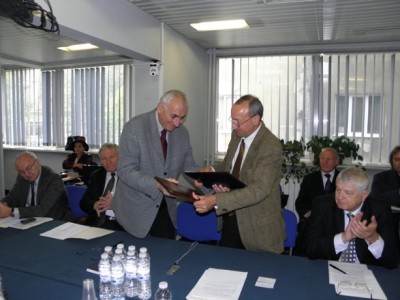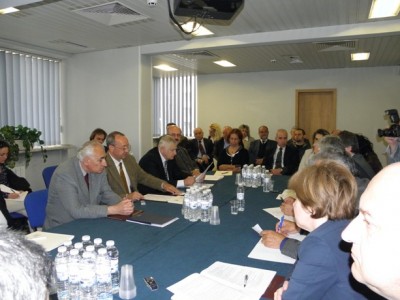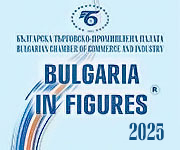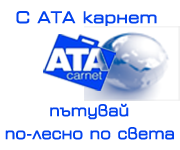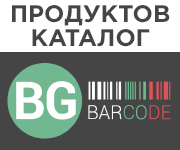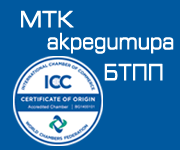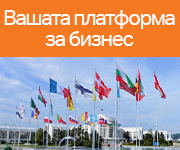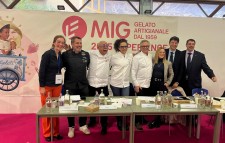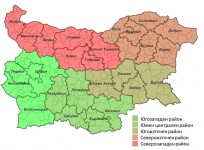Назад
Назад
Innovation Council with BCCI started work
The Bulgarian Chamber of Commerce and Industry, the Bulgarian Academy of Science, the Agricultural Academy, the Technical University – Sofia and about 10 other universities agreed to establish an Innovation Council. The Constituent Assembly of the new structure took place at BCCI’s headquarters and was attended by representatives of the scientific circles and the business. The Vice-Chairman of BAS, Acad. Alexander Popov and the President of BCCI, Tsvetan Simeonov signed an official agreement, according to which the new Council will assist the implementation of innovative products and services and will help establish connections between the science institutes and the business.
“A scientific development, however innovative it may be, is not an innovation unless it is used by the business and has practical application”, said Acad. Popov. He was certain that the new structure will help enhance competitiveness of Bulgarian economy and will contribute to the development of science.
“The functions of the Innovation Council will be logistic. It will bring science to practice. The aim of the council is to provide a close, constant relation between the business and the scientific circles so that their work is better coordinated. We proposed to the Ministry of Economy, Energy and Tourism to designate a representative to take part in the new structure. This should be a high official so that he can competently and responsibly participate in the work of the Council and provide it with the support of the state”, BCCI’s President explained.
During the Constituent Assembly a framework cooperation agreement was signed between BCCI and BAS, which in its essence is an update of the agreement BCCI and BAS signed two years ago, the focus being put on science and innovation. Because the Chairman of BAS was absent, the agreement was signed by BCCI’s President, Tsvetan Simeonov and the Vice-Chairman of BAS, Acad. Alexander Popov. “We will rely on the business to place orders with us, telling us what to do, in what spheres to focus our specific scientific efforts so that we are useful to the business. This agreement will provide the necessary conditions for this type of relationship”, Acad. Popov said.
It was decided that the management board of the Council will consist of 9 members. Prof. Stefan Hadzhitodorov, Chief Scientific Secretary of BAS and Yosif Avramov, Member of the Management Board of BCCI and Chairman of the Management Board of EU Programmes Consultancy Center “Lyulin” were elected as co-chairmen of the Council. Assoc. Prof. Elena Goranov, Manager of IKAR Innovation Company was elected as an Executive Secretary. The other members of the council are: Dr. Eng. Tsolo Voutov, Manager of GEOTECHMIN; Petar Kanev, Manager of Demax Printing Houses; Prof. Dr. Svetla Bachvarova, Chairperson of the Agricultural Academy; Prof. Hristo Hristov, Chancellor of the European Polytechnic University – Pernik; Assoc. Prof. Kostadin Kostadinov, Scientific Secretary and Head of GIS Transfer Foundation at BAS.
Tsvetan Simeonov noted that there is a remarkable change in BAS’s attitude towards the business and working jointly with it. He noted that the previous year BCCI created an information database of scientific achievements with possible practical application. It turned out, however, that the business demonstrated very slim interest in the list of scientific achievements and innovations. “I am glad the scientific community will be ready to carry out the orders of business, because these orders will be placed while observing clear rules about the expenses which the private sector needs to pay, about the share of EU funding, and about the efforts and time this will cost the business. Therefore, contracts will be signed, allowing companies to plan their work in the long run. Based on these contracts, the business will be able to apply for external financing, e.g. before banks, provided that they have good business plan and the expected results of the innovation have been described thoroughly”, Mr. Simeonov said.
Last year BCCI held a survey among its members about the intentions of companies to implement innovations and it turned out that a large number of companies still don’t realize the need for rational and active use of the capacity of existing scientific units. Even though they could choose more than one answer, to the question how companies intend to implement innovations, 80% of the inquired intend to develop innovations using their own staff, which according to Tsvetan Simeonov is a bit thoughtless. 32% of the representatives of the business intent to introduce innovations with the help of scientific and research institutes, 20% - with the help of university specialists and 3% - with the help of foreign specialists. 32% of the participants in the survey don’t think their companies provide enough money for innovation, the results of the survey show.
The initiative and the ability of the participants in the Innovation Council to develop specific projects will be crucial to obtaining financing from EU funds and programmes, such as the national Operational Programme Competitiveness, the JEREMIE initiative thereto, Competitivess and Innovation Programme, the seventh and eighth EU Framework Programmes, etc.
11.05.2011
Още новини:
-
10-05-2011
-
09-05-2011
-
29-04-2011

 1 USD =
1 USD =  1 GBP =
1 GBP =  1 CHF =
1 CHF =  ISO 9001:2015
ISO 9001:2015